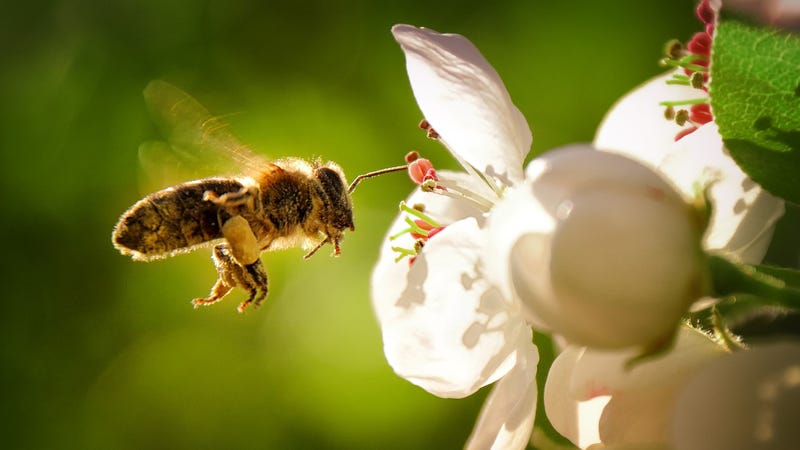
PHILADELPHIA (KYW Newsradio) — Bees are critical to our environment. Bee populations have also been declining and running into problems like colony collapse for decades.
What would happen if we lost bees completely?
Dr. Jon K. Gelhaus, professor of biodiversity, Earth and environmental sciences, and curator of entomology at the Academy of Natural Sciences at Drexel University, said the first domino to topple would involve parts of our food supply. Listen to his full conversation with Matt Leon on KYW Newsradio In Depth below.

“If we're looking at crops, we see problems right away, because we rely every year on those crops being produced,” said Gelhaus.
“Unless we found some technological way, or we're doing it ourselves, going around every flower and moving pollen, immediately our food supply would be affected.”
He suggested that grains that rely more on the wind to pollinate could still grow, but many plants that provide food would not receive the pollination they need if bees aren’t around to do the job.
“It would just be such a changed world, and the biodiversity would be so much less because all the things that rely on the products from those pollinations would be gone very quickly,” he said.
Gelhaus said some of the next dominoes in the chain of events could involve the extinction of species that directly depend on bee-pollinated plants.
“You would get what we call extinction cascade,” Gelhaus warned.
He said, for example, that some birds depend on fruit that would no longer exist because bees aren’t pollinating, while other birds feed on the insects that feed on similar fruit.
“Birds are getting hit in multiple ways,” he said. “We’d have a complete loss of so many species within a very short period of time.”
Gelhaus explained that in a general sense, scientists need to study more of how ecosystems work and how we move entire natural ecosystems, to help us avoid biodisasters that could dramatically affect our food supply.
“One of our things that we just don't have a lot of research on is how some of these systems are operating, and just monitoring what is a healthy system,” he said.
“I think that is something we need to pay a lot more focus on, (moving) our global trade and our movement of species around because that is going to lay the ground for some other devastations that will happen, catastrophes.”
Eventually, if such catastrophes happen, or even in case of a future catastrophe, is it possible for people to do targeted pollination to limit or overcome the damage?
“It's possible, I would think, but it will come at a great cost,” said Gelhaus.
“I think there would be a long period of really tough times before the technology would get to the point where you can have the wide variety of crops pollinated that bees are already doing for us.”
For more from KYW Newsradio:
- Download the Audacy App
- Listen live
- Listen on your smart speaker
Listen to the full KYW Newsradio In Depth podcast with Gelhaus and our Matt Leon below.




